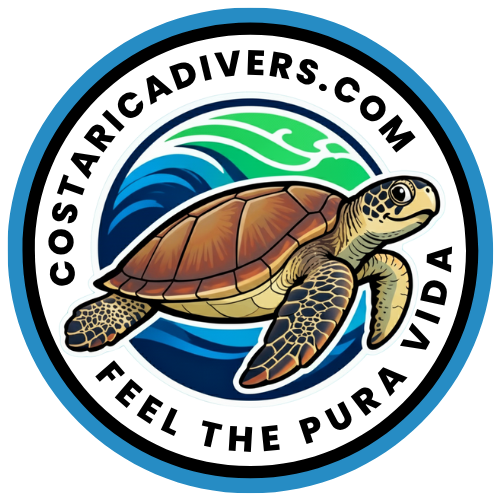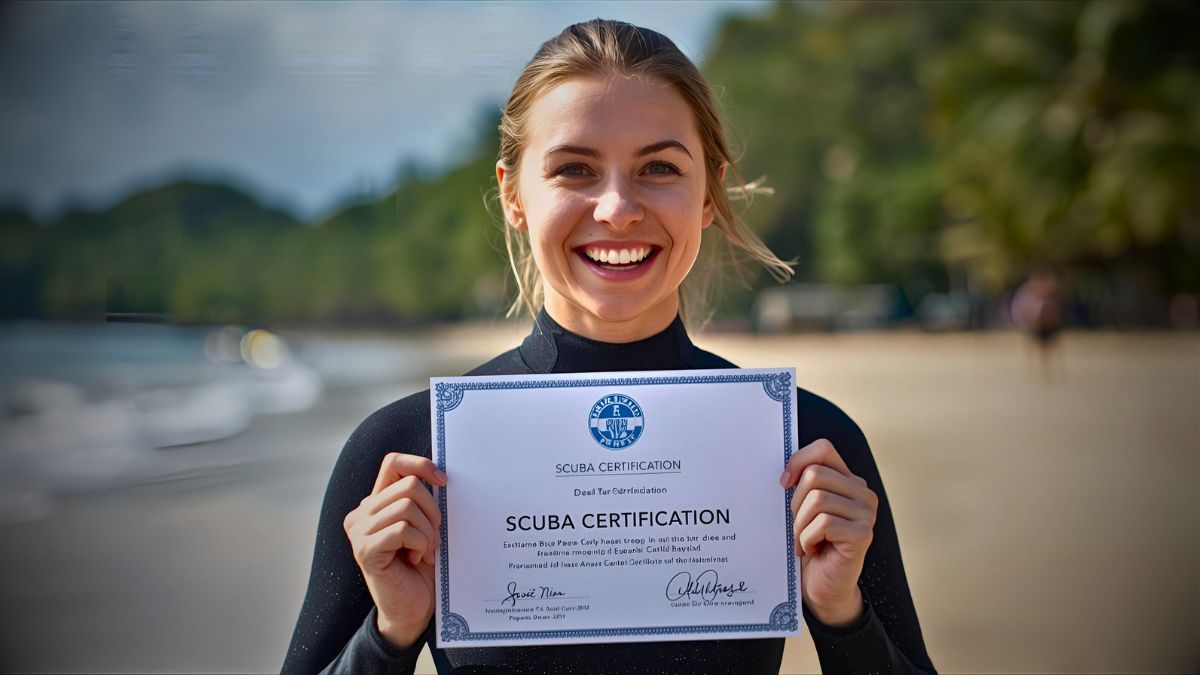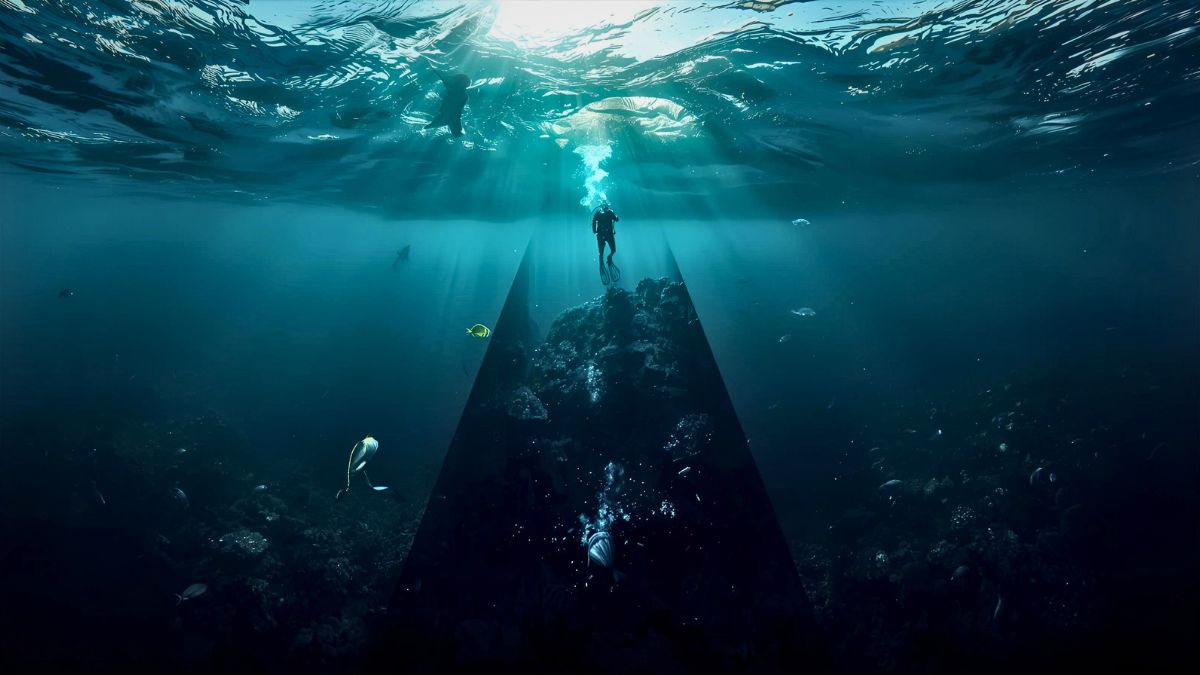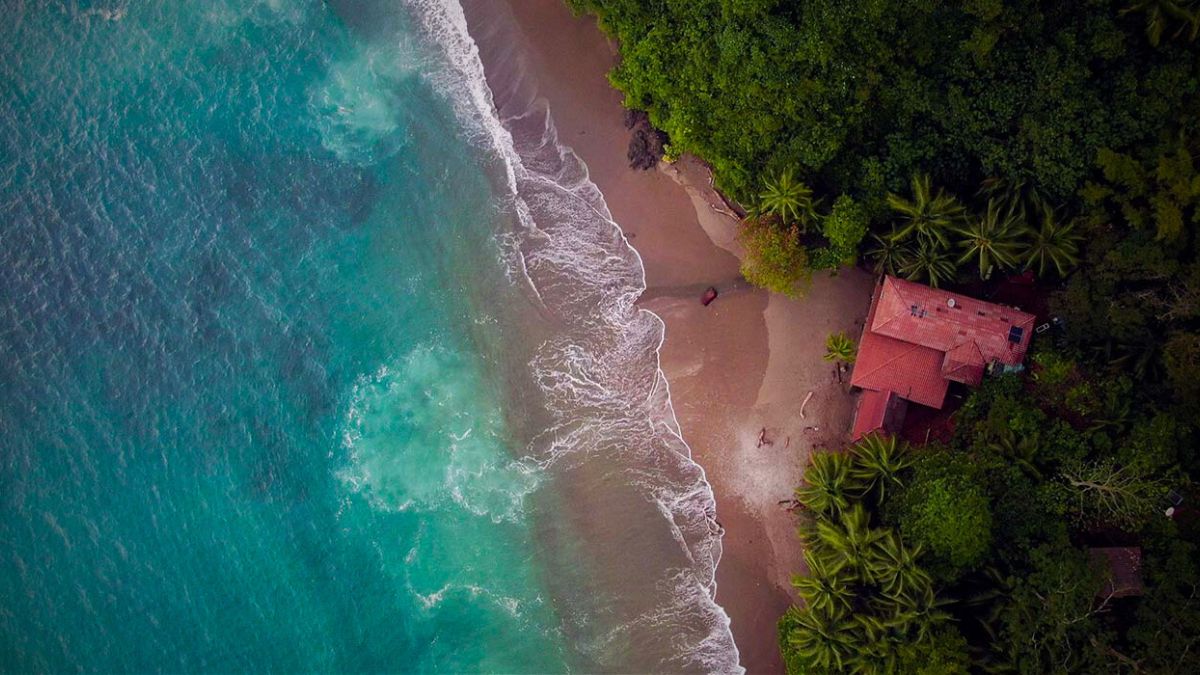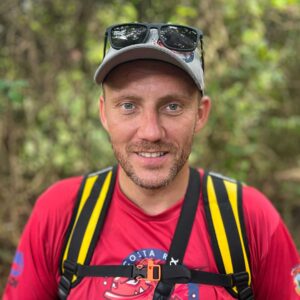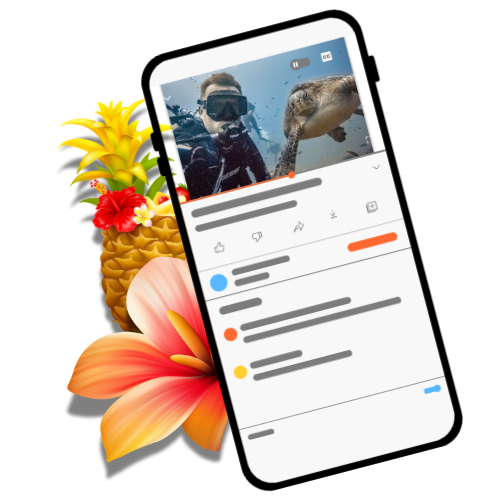Have you ever dreamed of floating weightlessly among colorful fish, exploring a world that most people only see in documentaries? If you’re reading this, you’ve probably asked yourself: can you scuba dive with no experience? I’m thrilled to tell you that the answer is absolutely yes!
You don’t need any prior training, special skills, or years of preparation to begin your underwater adventure. With the right guidance and a sense of curiosity, anyone can safely explore the ocean depths, even if you’ve never worn a wetsuit before.
At Costa Rica Divers, we’ve welcomed hundreds of first-time divers who arrived nervous and left empowered. In this guide, I’ll walk you through everything you need to know about starting your scuba diving journey from scratch, including what to expect during your first dive, how to overcome common fears, and why Costa Rica offers one of the best environments in the world for beginners.
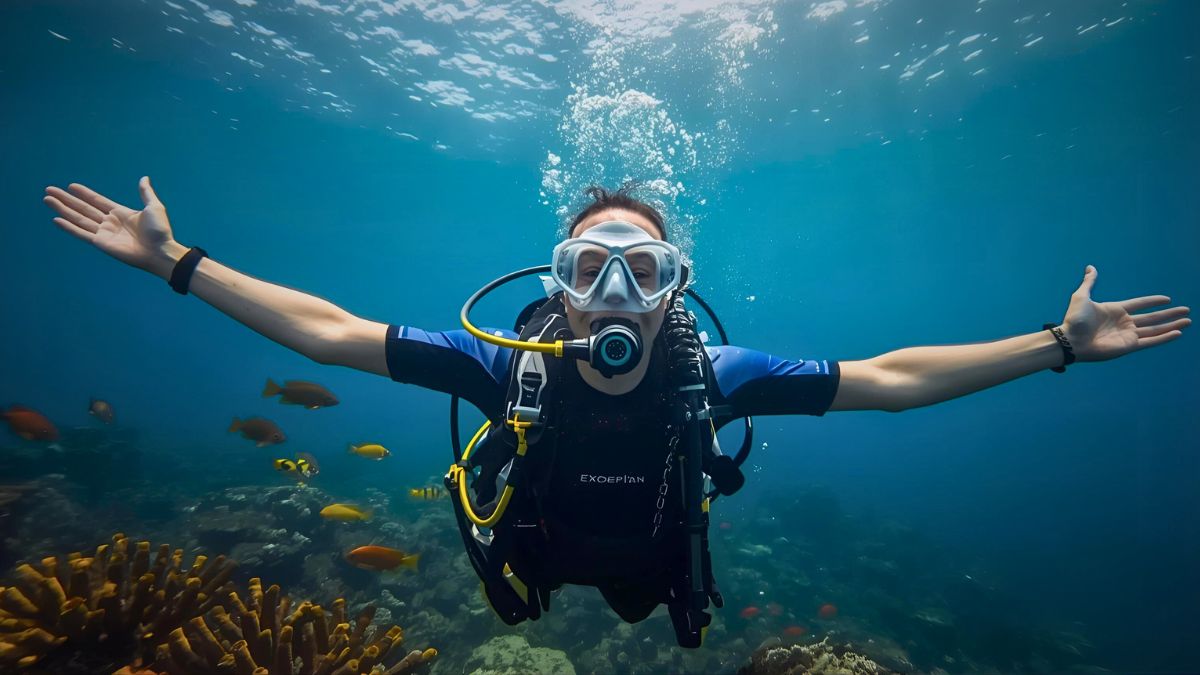
How Can You Dive Without Experience?
The key to diving without experience lies in professional training and supervision. PADI (Professional Association of Diving Instructors) offers beginner-friendly courses specifically designed for people who have never dived before. PADI is the world’s most recognized diving organization, with over 6,600 dive centers in more than 180 countries.
For complete beginners, there are two main pathways:
Discover Scuba Diving (DSD) – This is a half-day introductory experience perfect if you’re short on time or want to test the waters before committing to a full course. You’ll learn basic safety concepts, practice in a pool or calm shallow water, and then do a supervised dive with an instructor. No certification is earned, but you get a genuine taste of underwater exploration. Learn more about our Discover Scuba Diving program.
PADI Open Water Diver Course – This is the full certification course that qualifies you to dive independently (with a buddy) up to 18 meters (60 feet) deep. The course typically takes 3-4 days and includes classroom learning, pool training, and four open water dives. Once certified, you can dive anywhere in the world. Explore our PADI Open Water Diver certification.
Did you know? Over one million people earn their PADI scuba diving certification every year. You could be next!
The beauty of these programs is that they’re structured to take you from complete novice to confident diver in a safe, progressive way. There are no prerequisites beyond basic swimming ability and reasonable fitness.
What to Expect in Your First Dive Course
If you’ve never been underwater with scuba gear, the idea can feel overwhelming. What will it be like to breathe through a regulator? Will I panic? What if something goes wrong? These are normal concerns, and the good news is that scuba courses are designed to address every one of them systematically.
Classroom and Pool Training
Your journey begins with knowledge development. Whether you choose in-person classes or online eLearning, you’ll cover essential topics like how scuba equipment works, basic physics of diving, safety procedures, and underwater communication using hand signals.
After the theory, you’ll move to confined water training, usually in a swimming pool. This is where the real fun begins. Under your instructor’s close supervision, you’ll practice fundamental skills:
- Breathing underwater through your regulator
- Clearing your mask if water gets inside
- Controlling your buoyancy to hover effortlessly in the water
- Basic emergency procedures like sharing air with a buddy
I remember my first pool session, I was convinced I’d feel claustrophobic or panic when I submerged. Instead, I felt an unexpected sense of calm. The sound of my own breathing was meditative, and the weightlessness was unlike anything I’d experienced. Don’t worry if it takes you a few minutes to adjust. Most beginners need time to get comfortable, and that’s completely normal.
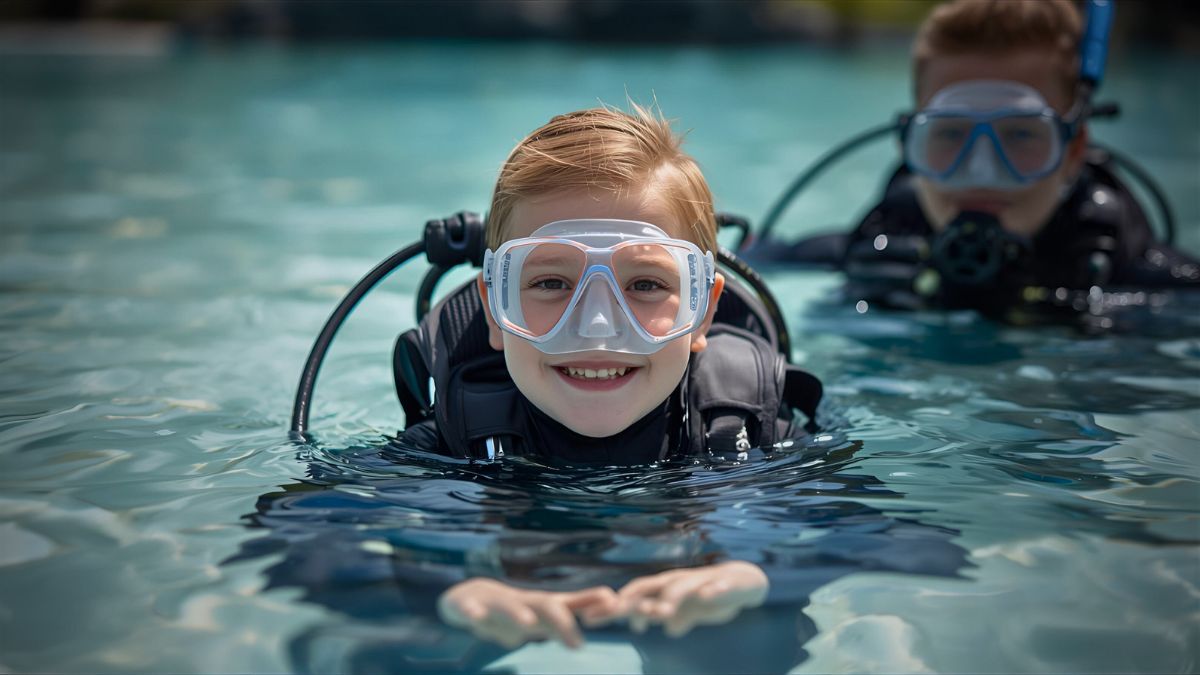
The Open Water Experience
After mastering skills in the pool, you’re ready for the highlight: your first open water dives. For PADI Open Water certification, you’ll complete four dives over two days in a natural environment like the ocean.
These initial dives happen in calm, shallow waters where you can still see the surface and feel secure. Your instructor stays right beside you throughout the entire experience. In Costa Rica, we conduct beginner dives at sites known for gentle conditions, excellent visibility, and abundant marine life that makes even your first dive memorable.
During these dives, you’ll practice the same skills you learned in the pool, but now surrounded by real fish, coral formations, and the vast blue of the ocean. It’s an indescribable feeling, the moment you realize you’re breathing underwater, moving in three dimensions, and witnessing a world most people never see. Check out some of our beginner-friendly dive sites in Costa Rica.
Overcoming Common Fears About Scuba Diving
Let’s address the elephant in the room or rather, the fear in the wetsuit. Many beginners harbor concerns that prevent them from taking the plunge. I want to tackle the most common ones head-on.
Fear of Breathing Underwater
This is the number one concern I hear: “What if I can’t breathe through the regulator?” or “What if I run out of air?” Here’s the truth: your scuba equipment is specifically engineered for safety and ease of use. The regulator delivers air on demand with every breath you take it’s actually easier than breathing through a snorkel.
During your training, your instructor will guide you through breathing exercises in shallow water first. You’ll discover that the rhythm becomes natural within minutes. Plus, you’ll constantly monitor your air supply using a gauge, and your instructor will check it too. Running out of air is virtually impossible when you follow proper procedures.
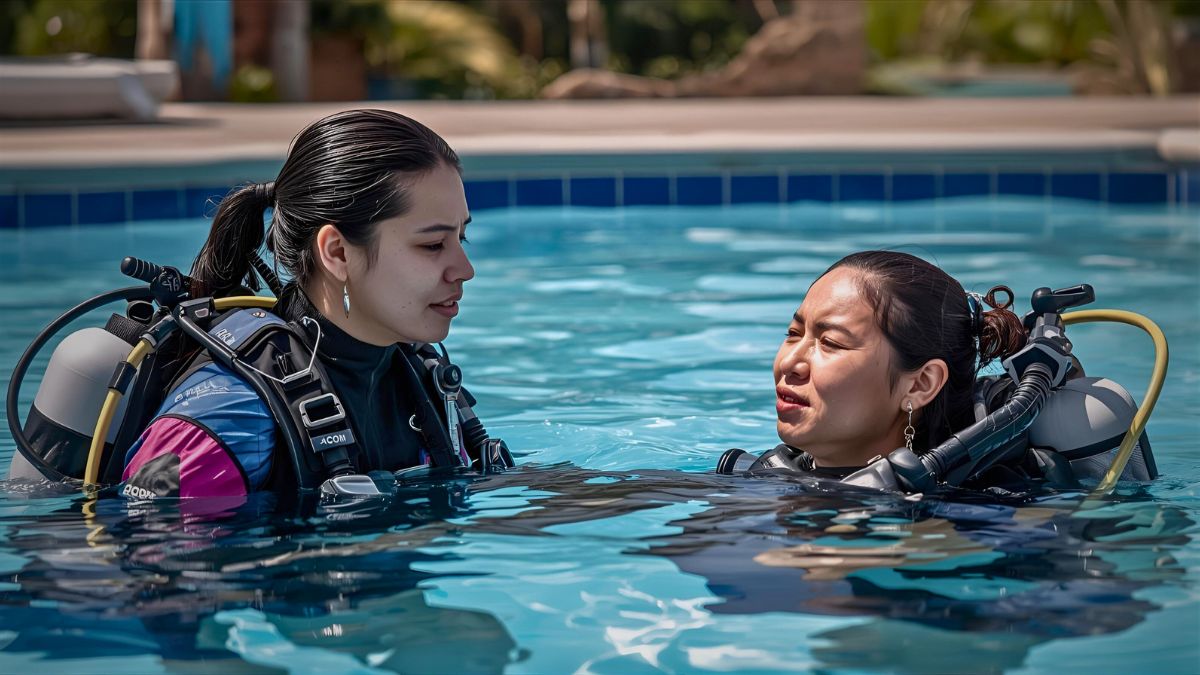
Claustrophobia
Many people worry that being underwater will trigger claustrophobic feelings. Interestingly, I’ve worked with several divers who experience claustrophobia on land but feel completely free underwater. Why? The ocean is vast and open. You’re not confined in a small space, you’re floating in an enormous three-dimensional environment with unlimited visibility in every direction.
If you do feel anxious, you can simply swim to the surface during shallow training dives. Your instructor will also teach you techniques to stay calm, including focusing on slow, deep breathing.
Safety Concerns
Is scuba diving dangerous? This is a fair question. The reality is that scuba diving has a lower injury rate than many popular land-based sports like skiing, football, or even running. According to diving safety research, serious incidents are rare and almost always involve divers who ignored safety protocols or exceeded their training limits.
When you dive with proper training, appropriate equipment, and professional supervision, especially as a beginner, the activity is remarkably safe. At Costa Rica Divers, safety isn’t just a priority; it’s embedded in everything we do, from equipment maintenance to instructor ratios to site selection.
Fun Fact: Scuba diving actually helps reduce stress! The slow, deep breathing techniques you learn are similar to meditation practices and can lower your heart rate and promote relaxation.
What is PADI, and Why Is It Important for Beginners?
You’ve probably noticed I mention PADI frequently. If you’re wondering what makes this organization special, here’s why it matters for beginners.
PADI stands for Professional Association of Diving Instructors, and it’s the world’s largest recreational diving membership and diver training organization. With over 6,600 dive centers and resorts worldwide, PADI sets the gold standard for diving education.
For beginners, choosing a PADI-certified dive center offers several advantages:
- Global Recognition – Your PADI certification is accepted at dive sites worldwide, from Thailand to the Caribbean to Australia.
- Standardized Training – No matter where you get certified, the course content and safety standards remain consistent and high-quality.
- Progressive Learning – PADI’s modular approach lets you start with basics and advance at your own pace through specialty courses.
- Proven Safety Record – PADI’s training methods have been refined over decades and are backed by extensive safety research.
When you earn your PADI Open Water Diver certification, you’re joining a global community of millions of divers. It’s like getting a passport to underwater destinations around the planet. Learn more about different diving organizations and certifications.
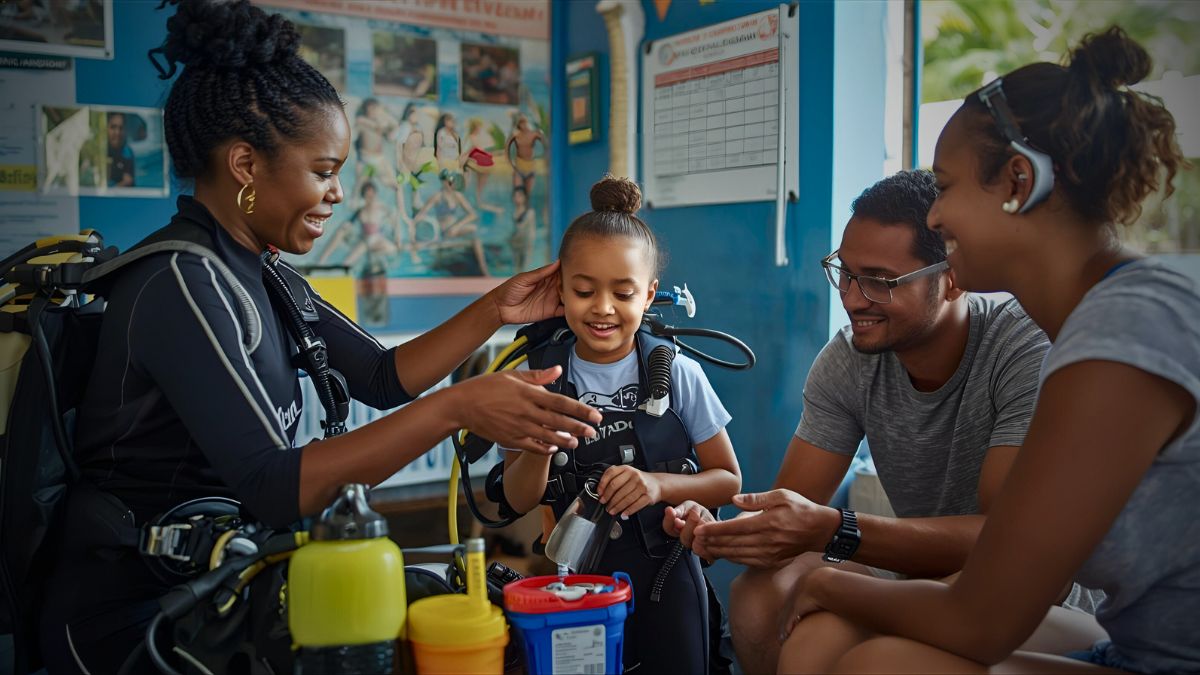
The Benefits of Scuba Diving for Beginners
Beyond the obvious thrill of exploring underwater, scuba diving offers surprising benefits that many beginners don’t expect.
A Gateway to Conservation
Something remarkable happens when you experience the underwater world firsthand, you start to care about protecting it. Many new divers develop a deep connection with the ocean and become passionate advocates for marine conservation.
Costa Rica is a global leader in environmental protection, having abolished its military in 1949 to redirect funding toward education, healthcare, and conservation. When you dive here, you’re not just a tourist; you’re witnessing the results of decades of conservation efforts. From thriving coral reefs to protected marine parks, you’ll see why this country is a model for ocean stewardship. Discover more about marine conservation in Costa Rica.
Physical and Mental Health Benefits
Scuba diving provides both physical and mental health benefits that beginners often discover by happy accident. The slow, controlled breathing you practice underwater helps reduce stress and anxiety, it’s essentially meditation in motion. Many divers report feeling a sense of peace and presence that’s hard to find in daily life.
Physically, diving offers a low-impact workout that improves cardiovascular health, strengthens core muscles, and increases flexibility. Because you’re weightless underwater, there’s minimal stress on joints, making it accessible even for people with certain physical limitations.
Expert Insight: “Many of our new divers are surprised at how calming scuba diving can be. It’s like entering a whole new world, and the peacefulness of the underwater environment is unmatched. First-time divers often tell me it’s the most present and mindful they’ve felt in years,” says John Davies, a PADI-certified instructor with over 15 years of experience.
Why Costa Rica is a Perfect Destination for First-Time Divers
If you’re going to learn to scuba dive, location matters enormously. Costa Rica offers a combination of factors that make it one of the best places in the world for beginners to start their diving journey.
Ideal Water Conditions
Costa Rica’s Pacific coast features warm water year-round (typically 24-29°C or 75-84°F), so you’ll be comfortable in a thin wetsuit without the chill that can distract nervous beginners. The country also offers numerous dive sites with calm, protected waters perfect for first-timers.
Sites like the Catalina Islands and Papagayo Gulf feature gentle currents, excellent visibility (often 15-30 meters), and shallow reefs where you can practice skills without anxiety. These aren’t just beginner sites, though they’re spectacular diving destinations that would impress even experienced divers.
Incredible Marine Biodiversity
One of the frustrations beginners sometimes face is completing their certification but not seeing much marine life during training dives. That’s not a problem in Costa Rica. Even during your first dives, you’re likely to encounter:
- Green sea turtles gliding past you
- Schools of colorful tropical fish
- Graceful manta rays and eagle rays
- Friendly white-tip reef sharks (they’re harmless!)
- Vibrant coral formations and rock structures
Costa Rica is home to over 3.5% of the world’s marine biodiversity, despite representing only 0.03% of the planet’s surface. That concentration of life means every dive, including your very first feels like an adventure. Explore what you might see when scuba diving in Costa Rica.
World-Class Dive Centers and Instructors
Costa Rica has earned a reputation for professional, safety-focused dive operations. At Costa Rica Divers, our instructors don’t just teach diving, they’re passionate about creating transformative first experiences. We maintain small group sizes, use top-quality equipment, and choose dive sites based on current conditions to ensure your comfort and safety.
Our team speaks multiple languages, understands the specific concerns of beginners, and has extensive knowledge of local marine life and dive sites. When you learn with us, you’re not just getting certified; you’re joining a community that will support your diving journey for years to come.
Easy Accessibility
Unlike remote dive destinations that require complex travel arrangements, Costa Rica is easily accessible from North America, with direct flights to San José or Liberia from major cities. Many of the best dive sites are located near tourist-friendly areas with excellent infrastructure, accommodations, and other activities for non-diving companions.
You can combine your diving certification with a broader Costa Rica adventure, rainforest exploration, wildlife watching, beach relaxation, making it an ideal destination for your first dive experience.
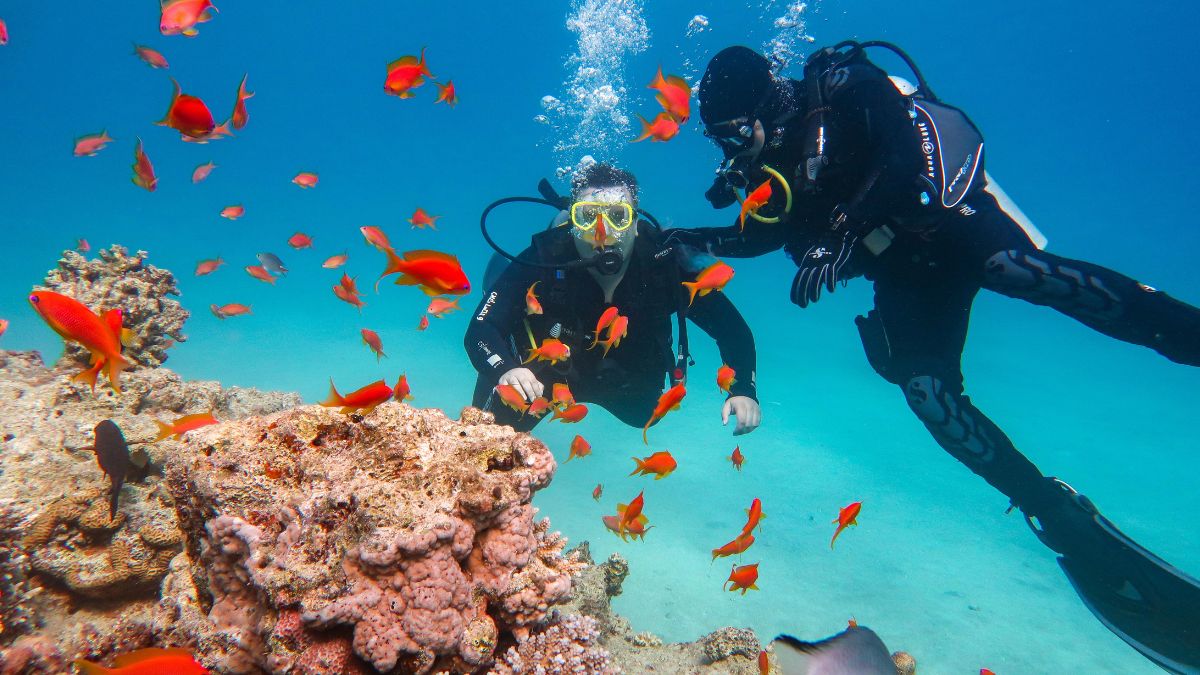
Ready to Take the Plunge?
If you’ve made it this far, you’re clearly serious about exploring the underwater world. The question “can you scuba dive with no experience?” has been answered: yes, absolutely, and you can start today.
Scuba diving is one of those rare activities that’s both exhilarating and accessible, challenging and achievable, adventurous and safe when done properly. It doesn’t matter if you’re 10 years old or 70, athletic or average, bold or cautious, there’s a place for you underwater.
At Costa Rica Divers, we’ve helped countless beginners take their first breaths underwater and watched them fall in love with diving. Some go on to become passionate divers who explore oceans around the world. Others are content with occasional vacation dives in beautiful places. Either path is valid, and both start with that first decision to try.
Don’t be afraid of diving!
The ocean is waiting for you. It’s been there for millions of years, and it will still be there tomorrow, but your opportunity to experience it is happening right now. Don’t let another year pass wondering “what if?” Instead, take the step from curious beginner to certified diver.
Contact us today to learn more about our beginner courses, ask questions, or book your PADI Open Water Diver certification. We’ll guide you through every step of the process, answer all your concerns, and ensure your first dive experience is safe, comfortable, and absolutely unforgettable.
The underwater world is calling. Are you ready to answer?
Frequently Asked Questions
Do I need to be a strong swimmer to scuba dive?
You don’t need to be an Olympic swimmer, but you should be comfortable in the water. PADI requires that you can swim 200 meters (or 300 meters with mask, fins, and snorkel) and tread water for 10 minutes. If you can do basic swimming and feel relaxed in the water, you’ll be fine. The scuba equipment actually makes you buoyant, so you’re not swimming hard during dives.
How long does it take to get scuba certified?
The PADI Open Water Diver course typically takes 3-4 days. This includes online or classroom learning (which you can complete at your own pace beforehand), confined water training sessions, and four open water dives. If you’re short on time, you can complete the theory and pool sessions at home, then finish your certification dives in Costa Rica over a long weekend.
Is scuba diving safe for kids?
Yes! Children as young as 10 years old can participate in the PADI Open Water Diver course (ages 8-9 can do the PADI Bubblemaker program). Kids often adapt to diving quickly and love the adventure. At Costa Rica Divers, we have experienced instructors who specialize in teaching young divers and ensuring their safety and comfort.
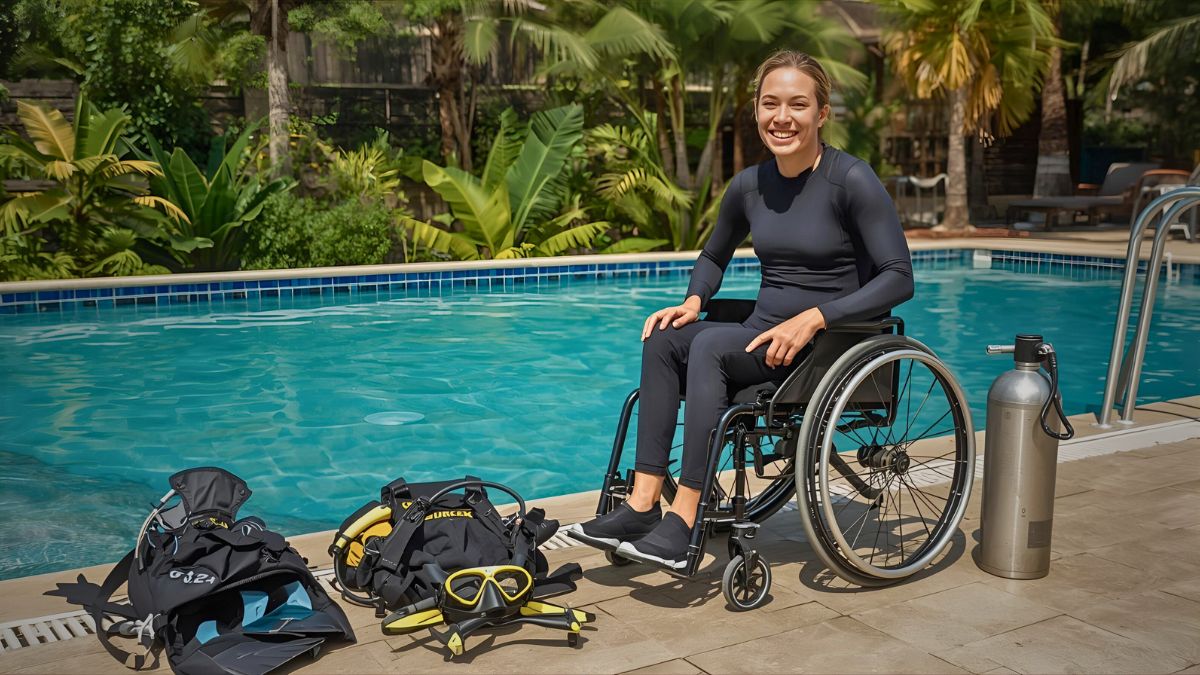
What if I have a medical condition?
Certain medical conditions require evaluation before diving. PADI provides a medical questionnaire that covers conditions like asthma, heart problems, and ear issues. If you answer “yes” to any questions, you’ll need clearance from a physician before diving. Most common conditions don’t prevent diving, but it’s important to be honest and get proper medical advice.
Can I try scuba diving without getting certified?
Absolutely! The PADI Discover Scuba Diving experience lets you try diving without committing to full certification. You’ll get a brief introduction to equipment and safety, practice in shallow water with an instructor, and do a supervised dive. It’s a perfect way to see if you enjoy diving before investing in the full course.
How deep can beginners dive?
PADI Open Water Divers (newly certified) can dive up to 18 meters (60 feet) deep. The Discover Scuba Diving experience is limited to 12 meters (40 feet). These limits are in place for your safety as you build experience and skills. As you advance and gain more training, you can eventually dive to greater depths.
What equipment do I need to buy?
For your initial training, you don’t need to buy anything. Dive centers provide all necessary equipment including wetsuit, mask, fins, regulator, BCD (buoyancy control device), and tank. Many divers eventually purchase their own mask, snorkel, and fins for comfort and fit, but this isn’t required. You can rent equipment for years before deciding to invest in your own gear.
Sources and References
This article is based on verified information from reputable diving and safety organizations:
- PADI – Official information about diving courses, certification requirements, and safety standards
- Divers Alert Network (DAN) – Diving safety research and medical information
- National Center for Biotechnology Information – Research on scuba diving safety and injury rates
- Costa Rica Divers – 15+ years of experience teaching beginner divers in Costa Rican waters
